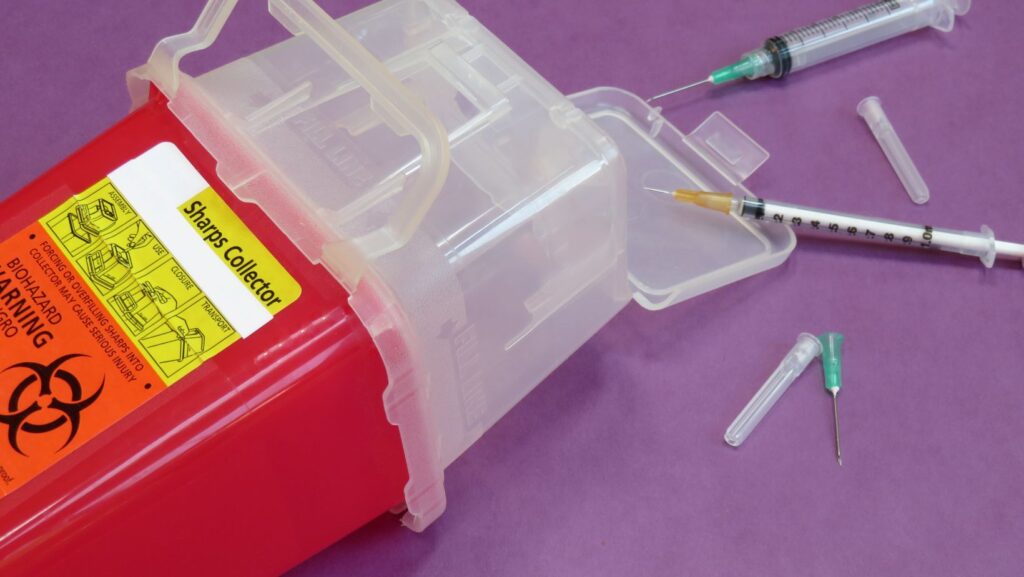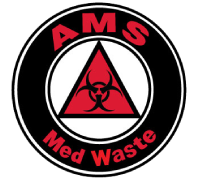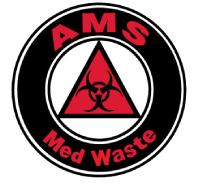
Sharps are a necessary part of many aspects of our lives, from giving injections to drawing blood. However, with that comes a responsibility to dispose of them safely and effectively. Improper sharps disposal can lead to serious health risks for both individuals and the environment. In this article, we will discuss some key practices that will help you safely dispose of sharps. Following these simple guidelines can help keep you and those around you safe from harm.
Use Proper Sharp Disposal Containers
One of the most important things you can do to dispose of sharps safely is to use proper sharps disposal containers. These containers are designed to be puncture-resistant and leak-proof so that they can effectively contain sharps and prevent them from causing harm. You can find sharps disposal containers at many pharmacies or online retailers. Be sure to choose a container that is the right size for your needs and that meets all local regulations.
Avoid Using Makeshift Containers
While it may be tempting to use a makeshift container such as a coffee can or plastic bottle, these are not designed for sharps disposal and can actually be quite dangerous. These containers can easily break or leak, exposing you and others to the sharps inside. They do not provide features to restrict access to used sharps. It is always best to use a proper sharps disposal container to ensure safety.
Never Recycle or Reuse Disposal Sharps Containers
Once a disposal sharps container is full, it should be disposed of properly and never recycled. Recycling sharps containers can put workers at risk of being punctured by the sharps inside or of spreading infection if the container is not properly sanitized. If you are unsure of how to dispose of your sharps container, check with your local waste management department.
Use Proper PPE
When handling sharps, it is important always to use proper personal protective equipment (PPE). This includes gloves, gowns, masks, and eye protection. These items will help to protect you from exposure to sharps and other potentially infectious materials. Be sure to put on PPE before handling sharps and remove it immediately after disposing of the sharps.
Wash Your Hands
After handling sharps or any other potentially infectious material, it is important to wash your hands thoroughly with soap and water. Handwashing is one of the best ways to prevent the spread of infection. Be sure to wash your hands for at least 20 seconds, using hot water if possible. You can use an alcohol-based hand sanitizer if soap and water are not available.
Report Sharps
If you find a sharp on public property, review and follow the steps for safe handling and disposing of a sharp safely. It is best to report these sharps to the owner of the property or
appropriate public works/safety departments. Never attempt to clean up sharps without proper
PPE.
Sharps Safety Check
You should also regularly check the sharps disposal container to make sure it is safe:
- Not punctured
- Not filled above the “full” line
- Not leaking
- Not stored near food supplies
- Not stored where children can reach it
What Should I Do If I Am Injured By A Used Needle?
All workplace injuries must be reported to the supervisor by the employee. If you cut or puncture yourself with a used sharp, you should administer first aid before contacting a doctor. You might be given preventative drugs, depending on the source of the infection and your immunological condition.
What Do I Do With A Full Sharps Container?
The best option is to hire a medical waste disposal company to pick up the full sharps container. This is the safest and most effective way to ensure that sharps are properly disposed of.
If you must dispose of a sharps container on your own, check with your local waste management department for guidance on how to do so safely. Never recycle or reuse a sharps container.
By following these simple guidelines, you can help to keep yourself and those around you safe from harm. Improper sharps disposal can lead to serious health risks, but by taking some basic precautions, you can help to prevent accidents and illnesses. Safe sharps disposal is an important part of keeping our communities healthy and safe.
If you require medical waste disposal, then look no further than AMS Med Waste. We are a full-service medical waste disposal company that can help you with all of your sharps disposal needs. We offer pick-up, transport, and disposal services for sharps containers of all sizes. Contact us today to learn more about our sharps disposal services or to schedule a pick-up. AMS Med Waste Disposal is here to help you keep your community safe!





